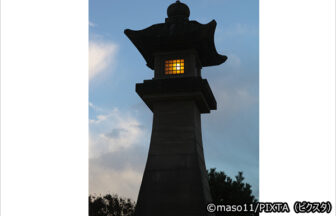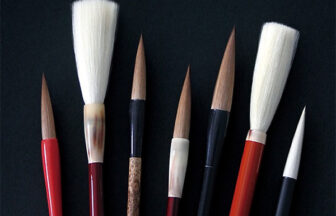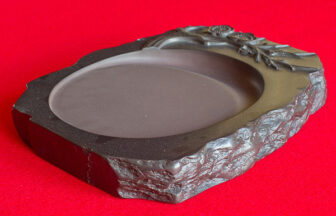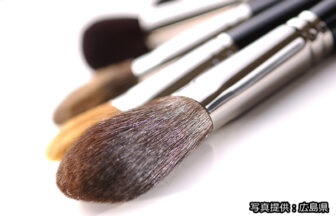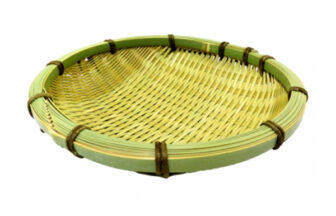Production Area
Hamada City / Gotsu City, Shimane Prefecture
Historical Details and Geographic Characteristics
Originating in Shimane Prefecture, sekishu washi is said to have been introduced by Kakimoto no Hitomaro, a Manyo poet who died serving as an Iwami provincial governor in the early 8th century. During the Edo period, papermaking was encouraged until the domain assumed a monopoly. Sekishu washi was mainly shipped to Osaka where its robustness and durability were lauded. It is even said that Osaka merchants used it for their account books and could safely throw it into a well to preserve it in case of fire.
What makes the Iwami region superior for the production of washi is its sandy gravel and magnesium-rich soil suitable for growing mulberry, also known as kozo (used for the production of washi). Even nicknamed “the Land of Kozo,” most of washi’s production is shipped out of the region. Another unique feature of the Iwami region is the use of mucilage from tororo aoi, an hibiscus, as an auxiliary adhesive in the papermaking process.
Officially designated as an Important Intangible Cultural Property and UNESCO Intangible Cultural Heritage, sekishu washi has various uses, such as calligraphy paper, wrapping, paper for dyeing, envelopes, stationary, postcards, colored paper, business cards, and more.
Main Retailer/Exhibition Facility
Sekishu Washi Kaikan
| Address | 589 Misumicho Furuichiba, Hamada City, Shimane Prefecture |
|---|---|
| Phone | 0855-32-4170 |
| Hours of Operation | 9:00 a.m. – 5:00 p.m. |
| Closed | Mondays (If the Monday falls on a holiday, the museum will close the following day), Year-end/New Year holidays |
| Admission Fee | Free |
| URL | https://www.sekishu-washikaikan.com/ |
| Social Media | https://www.facebook.com/sekishuwashikaikan/ |






